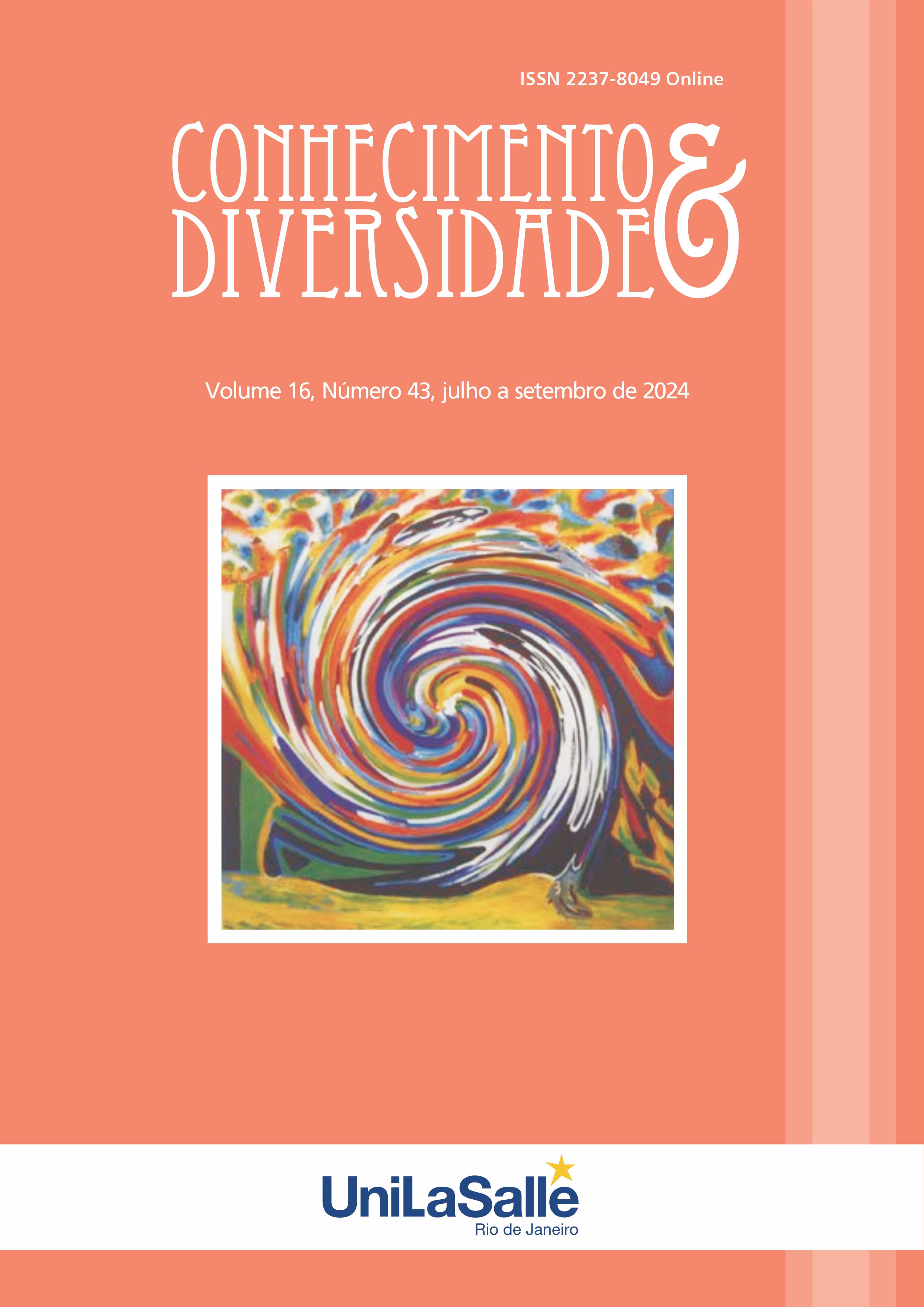THE EFFECT OF COGNITIVE BEHAVIORISTIC COUNSELING WITH MODELING TECHNIQUES ON STUDENTS' SELF-CONFIDENCE AND LEARNING DISCIPLINE VIEWED FROM FAMILY SOCIO-ECONOMIC STATUS
DOI:
https://doi.org/10.18316/rcd.v16i43.11848Palabras clave:
Counseling, Cognitive Behaviorism, Self-Confidence, Learning Discipline, Family Socioeconomic StatusResumen
This research aims to identify the effect of behavioral cognitive counseling with modeling techniques on students' self-confidence and learning discipline in terms of family socio-economic status. This research is experimental research involving 2 groups of students as an experimental group and a control group. The results of the research reveal 1) Behavioristic cognitive counseling with modeling techniques has a significant effect on students' self-confidence viewed from family socio-economic status, 2) Behavioristic cognitive counseling with modeling techniques has a significant effect on students' learning discipline viewed from family socio-economic status , 3) Behavioristic cognitive counseling with modeling techniques has a significant effect on students' self-confidence and learning discipline viewed from family socio-economic status. Referring to the findings of this research, it is recommended to apply bevarioristic cognitive counseling to help overcome problems of self-confidence and learning discipline. Parents are also recommended to provide moral and material support to meet students' learning needs.
Citas
AKBARI, O.; SAHIBZADA, J. Students’ Self-Confidence and Its Impacts on Their Learning Process. American International Journal of Social Science Research, v. 5, n. 1, p. 1–15, 2020.
APRILIANA, I. P. A.; SURANATA, K. Effectiveness of Cognitive Behavioral Group Counseling to Increase Self-Confident of Vocational High School Students. Bisma The Journal of Counseling, v. 4, n. 2, p. 194–207, 2020.
ATAYI, M.; HASHEMI RAZINI, H.; HATAMI, M. Effect of cognitive-behavioral play therapy in the self-esteem and social anxiety of students. Journal of Research and Health, v. 8, n. 3, p. 278–285, 2018.
BANDURA, A. Prentice-Hall series in social learning theory. Social foundations of thought and action: A social cognitive theory. [S.l.]: Prentice-Hall, Inc., 1985.
BARRY, J. The Effect of Socio-Economic Status on Academic Achievement. 2006. 2006.
BECK, J. S. Cognitive behavior therapy: Basics and beyond. 2nd. ed. [S.l.]: Guilford Press., 2011.
CHANDRA, E. K.; WIBOWO, M. E.; SUNAWAN, S. Cognitive behaviour group counseling with self instruction and cognitive restructuring techniques to improve students’ self confidence. Islamic Guidance and Counseling Journal, v. 2, n. 1, p. 11–17, 2019.
DAUD, M. et al. An Evaluation of Indonesian Students’ Self-Confidence in Learning Mathematics. Proceeding Book of the 3rd International Conference on Multidisciplinary Research, v. 03, n. 2, p. 978–623, 2020.
GREENE, M. J. Teacher as Counselor: Enhancing the Social, Emotional, and Career Development of Gifted and Talented Students in the Classroom. Gifted Education International, v. 19, n. 3, p. 226–235, 2005.
HIDAYATI, R.; KUSMANTO, A. S.; KISWANTORO, A. Development and Construct Validation of Indonesian Students Self-Confidance Scale Using Pearson Product Moment. Pegem Journal of Education and Instruction, v. 13, n. 3, p. 94–103, 2023.
ILYASIN, M. Students’ Discipline Management in Strengthening Modern Human Resources. Dinamika Ilmu, v. 19, n. 2, p. 351–361, 2019.
ISMAIL, M.; RAHIM, P. R. M. A.; YUSOFF, M. S. M. Educational Strategies to Develop Discipline among Students from the Islamic Perspectives. Procedia - Social and Behavioral Sciences, v. 107, p. 80–87, 2013.
KAPPES, H. B. et al. Poor peer work does not boost student confidence. Journal of Behavioral Decision Making, v. 33, n. 2, p. 139–150, 2020.
LATHAPIPAT, D. The influence of family wealth on the educational attainments of youths in Thailand. Economics of Education Review, v. 37, p. 240–257, 2013. Disponível em: <http://dx.doi.org/10.1016/j.econedurev.2013.07.004>.
NURHIDAYAH, B. S.; WIBOWO, M. E.; PURWANTO, E. Keefektifan Konseling Kelompok Cognitive Behavioral Therapy (CBT) dengan Teknik Modeling Simbolis dan Role Playing untuk Meningkatkan Self-Confidence pada Siswa. Bulletin of Counseling and Psychotherapy, v. 4, n. 1, p. 64–69, 2022.
OH, G. E. (GRACE). Social class, social self-esteem, and conspicuous consumption. Heliyon, v. 7, n. 2, p. e06318, 2021. Disponível em: <http://dx.doi.org/10.1016/j.heliyon.2021.e06318>.
OLSSON, N. C. et al. Treatment satisfaction with cognitive-behavioral therapy among children and adolescents with anxiety and depression: A systematic review and meta-synthesis. Journal of Behavioral and Cognitive Therapy, v. 31, n. 2, p. 147–191, 2021.
ROBERTS, A.; PALERMO, R.; VISSER, T. A. W. Effects of dominance and prestige based social status on competition for attentional resources. Scientific Reports, v. 9, n. 1, p. 1–12, 2019. Disponível em: <http://dx.doi.org/10.1038/s41598-019-39223-0>.
ROSJIDAN. Introduction to Counseling Theories. [S.l.]: Departemen Pendidikan dan Kebudayaan, 1988.
SALAMEH, K. A. The Effectiveness of a Cognitive-Behavioral Counseling Program in Modifying the Negative Behavior Among Students of Aqabat Jaber School Camp in the Governorate of Jericho. World Journal of Education, v. 9, n. 3, p. 105, 2019.
SUNDAR, N.; MESALIA, P. S. Any Teacher can be a Counsellor: Role of Teachers in Guidance and Counselling. Thiagarajar College of Preceptors Edu Spectra, v. 5, n. 1, p. 20–25, 2023.
TIARA, Z.; FIRMAN, F. Improvement of Self Confidence of Orphanage Children in Entrepreneurship through Group Guidance Services at Aisyiyah Orphanage Nanggalo Padang Branch. Jurnal Neo Konseling, v. 1, n. 4, 2019.
VENKATA, B.; DHEERAJ, K.; BHAT, S. A. Self-Esteem and Self-Confidence Among Adolescents Living in Different Socio-Economic Status. Suraj Punj Journal For Multidisciplinary Research, v. 9, n. 4, p. 513–528, 2019.
WAHYUDI, N.; CASMINI, C. Efektivitas Cognitif Behavioral Therapy Dengan Teknik Self-Control Untuk Meningkatkan Kedisiplinan Siswa. Acta Islamica Counsenesia: Counselling Research and Applications, v. 1, n. 1, p. 21–32, 2021.
WIJAYA, Z. R.; SANDI. The Influence of Motivation, Discipline and Self-Confidence on Student Academic Achievement in Management Study Program, Institut Manajemen Wiyata Indonesia. Cakrawala, v. 5, n. 1, p. 90–96, 2020.
Descargas
Publicado
Número
Sección
Licencia
Derechos de autor 2024 Made Cantiari, Ni Ketut Suarni, I Ketut Gading, Kadek Suranata

Esta obra está bajo una licencia internacional Creative Commons Atribución 4.0.
Tal como recomienda el Public Knowledge Project, RCD adopta para sus artículos una licencia CREATIVE COMMONS: Attribution CC BY 4.0
Esta licencia permite que otros distribuyan, remezclen, adapten y desarrollen su obra, incluso con fines comerciales, siempre que le atribuyan a usted el mérito de la creación original.
Esta es la licencia más adecuada que se ofrece.
Recomendado para la máxima difusión y utilización de los materiales bajo licencia.



